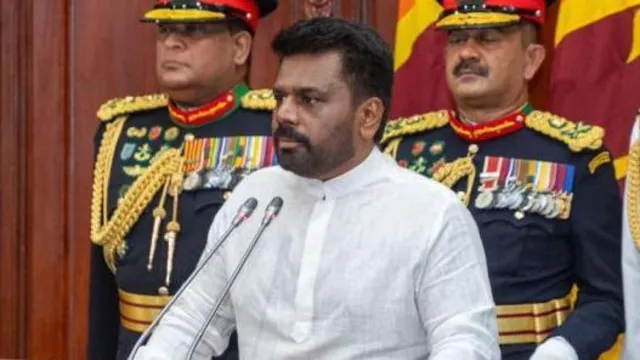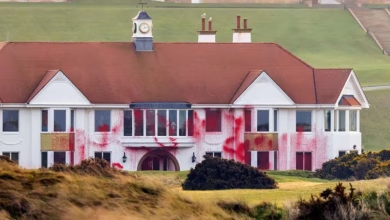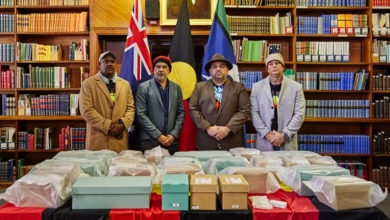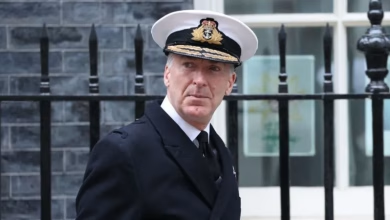Sri Lanka Welcomes New President: Anura Kumara Dissanayake Takes Oath

- Sri Lanka has sworn in its new president, Anura Kumara Dissanayake
- The 55-year-old president also stressed the importance of strengthening democracy
- Dissanayake's inauguration was attended by representatives of Sri Lanka's main religions
Sri Lanka has sworn in its new president, Anura Kumara Dissanayake, a left-leaning leader who promises to bring “clean” politics to the country.
This comes after Saturday’s election, the first since 2022 when economic discontent led to mass protests and the ousting of former president Gotabaya Rajapaksa.
Dissanayake, known as AKD, has positioned himself as a disruptor of the status quo, vowing to tackle corruption and cronyism.
In his oath-taking speech, he emphasized the need for a new political culture, saying, “We need to establish a new clean political culture… We will do the utmost to win back the people’s respect and trust in the political system.”
The 55-year-old president also stressed the importance of strengthening democracy, stating, “Democracy doesn’t end with voting in a leader… I pledge to do my utmost to safeguard democracy.”
He acknowledged his limitations, saying, “I am not a magician – I am an ordinary citizen,” and expressed his commitment to gathering experts to help lift the country.
Dissanayake’s inauguration was attended by representatives of Sri Lanka’s main religions, highlighting his emphasis on diversity.
He has promised good governance, anti-corruption measures, and development of the manufacturing, agriculture, and IT sectors.
He also plans to continue the deal with the International Monetary Fund (IMF) to address the economic crisis while protecting the country’s poorest.
Key Points:
- Election Victory: Dissanayake won with 5,740,179 votes, beating opposition leader Sajith Premadasa and outgoing President Ranil Wickremesinghe.
- Campaign Promises: Good governance, anti-corruption measures, and development of key sectors.
- IMF Deal: Continuing the deal to address the economic crisis while reducing austerity measures’ impact on the poor.
- Parliament Dissolution: Prime Minister Dinesh Gunawardena resigned, paving the way for parliament’s dissolution.
This new chapter in Sri Lankan politics marks a significant shift towards reform and growth. As Dissanayake takes the reins, the country looks forward to positive change.






